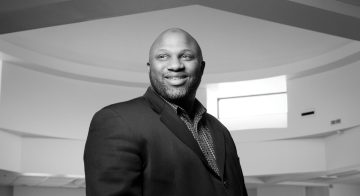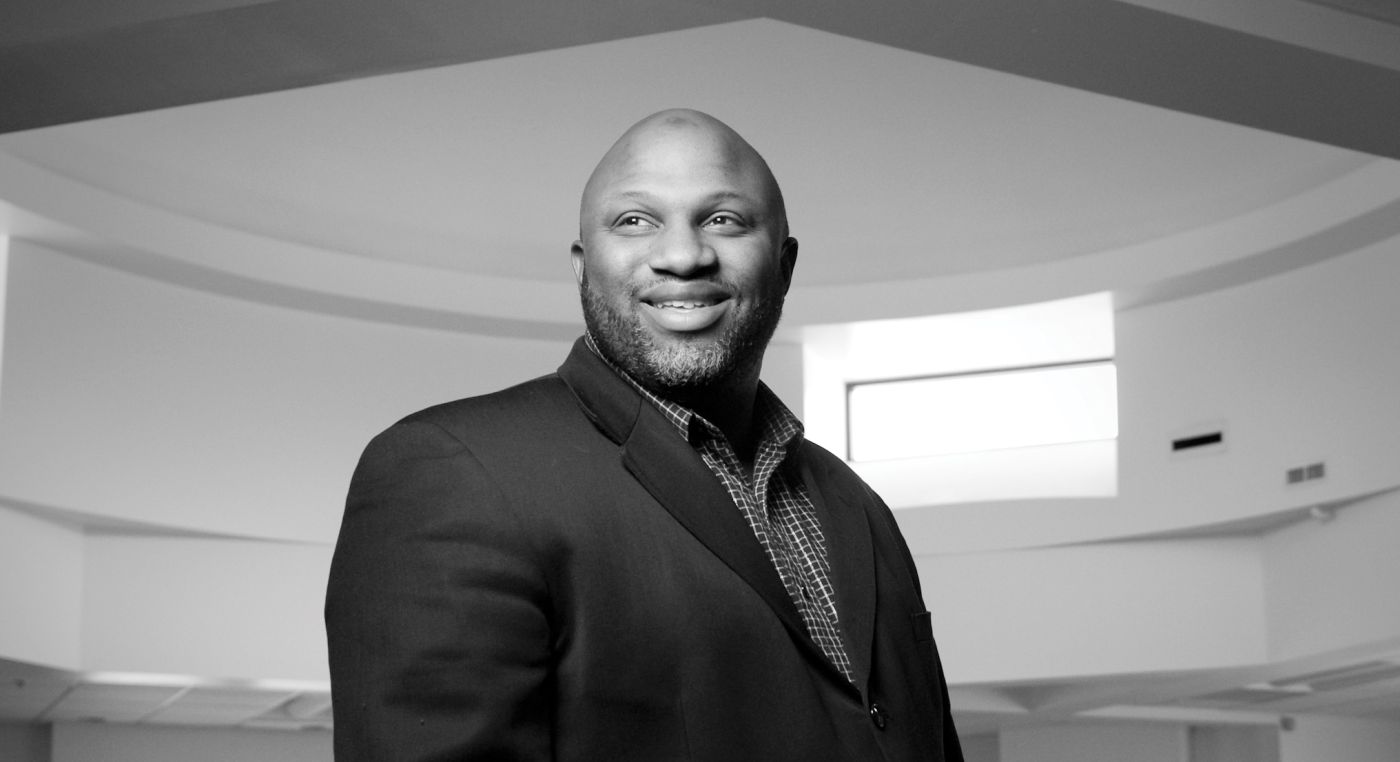Story
Makram El-Amin
Q&A with Duchesne Drew

Makram El-Amin, a 2014 Bush Fellow and the resident Imam of Masjid An-Nur in north Minneapolis, marked his 20th anniversary of leading the mosque in 2016. Over the years, El-Amin has grown the size and diversity of his congregation. While it has remained predominantly African American, the mosque has become home to a sizeable number of East Africans, Arabs and other Muslims of different cultural backgrounds. Beyond creating an environment that serves the needs of diverse segments of his community, El-Amin has dedicated himself to building ties to religious leaders of various faiths. Those friendships have brought comfort to El-Amin and his flock as anti-Muslim sentiments, rhetoric and violence have risen.
How do you want Muslims to be viewed in our society?
I long for the day when Islam is not an anomaly. I long for a day when it’s not strange… when it becomes such a part of the fabric of what we do. I mean, Catholic Charities serves everybody. We know what gave birth to Catholic Charities; it’s in the name. But it’s so synonymous with society that it’s the norm. It’s normal to go there and get your needs met. We want to be normal like that. We want to be seen as normal in that way. That “Oh, Muslims live in this neighborhood? Crime’s going to be down over here. It’s going to be safe around here. Property values are going to go up. Why? Because they feel obligated to God to take care of whatever is in their surroundings.” We want to be normal like that.

Why do you invest time in interfaith relationships?
Why do we spend time with our friends? Why do we get together and have breakfast once a month? Why do we have coffee together? It’s because we value one another and we add to each other. And in these days and times we live in right now… I got a text asking “How are you doing?” A friend was just checking on me. That’s what friends do. They didn’t do it for public relations. It’s just “How are you doing, man? How’s your family? Call me. I haven’t heard from you.” One of my dear friends, Carla, asked, “Do we need to come and surround the mosque during prayer time and make sure you guys are OK, in light of the [recent deadly attack on a mosque] in Canada? They’re just so ready to do what friends do. It’s what you would want in any relationship that’s meaningful. That in your time of need, to have that call that says, “I’m with you. Unequivocally. I’m with you. You tell me what you need.” That does something for the human spirit.
What has been the lasting effect of the Fellowship?
Self-care. I don’t come into the office every day. I work from home more. I have a couple of nice coffee shops that I get lost in sometimes. Because once I’m here [at the mosque], it’s game on. And it provides a little head space, a little space to think and to perceive and just to interact. It’s amazing the conversation you’ll strike up in a coffee shop with a person you don’t know. I’ve had phenomenal interactions that way. It never ceases to amaze me. I go home, I tell my wife, “Today was something. Guess what happened to me?” But I think having some time away, intentionally, during the Fellowship really made me see how I could benefit if I just worked this in.
Continue reading
-
News
February newsletter
Our February 2025 newsletter is full of information and resources to help people and organizations do more good in our region.
-

Paper
Lessons from our impact investing experience
The spread of impact investing among foundations is a wonderful example of our field’s collaborative nature at its best. Now we’re ready to pay it forward by sharing our approach and what we’ve learned along the way.
-

Paper
Radically Open: Contact Hub
In this paper, we share what we’ve tried and learned thus far from creating the contact hub to make us more accessible to more people.